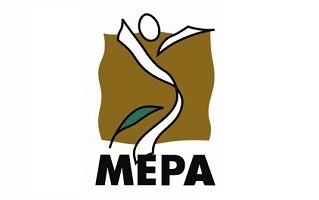
Understanding the various class systems in relation to property and permits can be tricky. That’s why we’ve simplified the process. The following is an explanation of the 8 MEPA classes which came into play in 2014 and replaced the 1994 classes.
These 8 classes are organised by category so as to make the information easier and more accessible.
The below is a list of all the classes along with a description of each. A list of exceptions and specific amendments is found at the end of the article, so be sure to read it all!

Category A: Residential
Class 1- Dwellings
This is related to private residential property intended for the use of individuals who will be living within the property. This class is therefore non commercial.
Category B: Social
Class 2A- Residential Institutions
This is in relation to organised entities which provide a residential service, such as retirement homes, hospitals, and nursing homes.
Class 2B – Non Residential Institutions
These include any institution which does not provide residency, such as clinics, child care centres, museums, libraries and more.
Class 2C – Education
This would include schools and educational institutions.
Category C: Tourism and leisure
Class 3A- Guest houses, Palazzini, Boutique Tourism accommodation, and Hostels
This class includes any small scale commercial establishment catering for the accommodation of guests.
Class 3B- Hotels
Class 3C- Assembly and Leisure
This includes any commercial entity which brings together a group of people, such as cinemas, bingo halls, gyms, outdoor sports areas, concert halls etc.
Class 3D- Marine Leisure
This class is used for motoring boats, marinas, sailing schools, and any other marine based sports or recreation.
Category D- Commercial
Class 4A- Financial, Professional and Other Offices
This class is related to commercial properties which include offices.
Class 4B- Retail
This class is related to any commercial entity related to retail and retail outlets.
Class 4C- Food and Drink establishment where no cooking is allowed
It is important to note that with this class the commercial entity is not allowed to cook, for that a different class must be applied for.
Class 4D- Food and Drink establishment where cooking is allowed
This class includes catering establishments which are able to cook food within the premises.
Category E: Industry
Class 5A- Light Industry
This class includes manufacturing industries related to consumer electronics, clothing, and other light manufacturing processes.
Class 5B- General Industry
This class relates to Industry of a general nature which does not fall under light industry or specialised industry.
Class 5C- Specialised Industry
This is industry related to a specific area and which involved a specialised level of skill and equipment.
Category F: Storage and Boatyards
Class 6A- Storage and Distribution
This class refers to the storage of boats along with the sale and distribution of boats.
Class 6B-Boatyards
This is in relation to areas of land where boats are stored or built.
Category G: Aquaculture
Class 7- Aquaculture
This is in relation to entities working within the sector related to fish farming and research.
Category H: Agriculture
Class 8- Agriculture
This is in relation to the growth of agricultural produce and rearing of livestock.

While the class uses are fairly straightforward there are some aspects related to the transfer of one use class to another which must be noted.
The general rule is that within the same category changing from one class to another requires a development permit. This means that if you wish to change your school (2C) into a nursing home (2A) you will need to apply for a development permit.
However the following are exceptions to this rule and do not need a development permit, instead a notification and reply mechanism is used.
- Hotels (3B) to tourism typologies (3A)
- Retail (4B) to Offices (4A)
- Food & Drink no cooking (4C) to Offices (4A)
- Food & Drink no cooking (4C) to Retail (4B)
- Food & Drink cooking (4D) to Offices (4A)
- Food & Drink cooking (4D) to Retail (4B)
- Food & Drink cooking (4D) to Food & Drink no cooking (4C)
- General Industry (5B) to Light Industry (5A)
- Specialised Industry (5C) to Light Industry (5A)
- Specialised Industry (5C) to General Industry (5B)
Moreover, Class 1 has been amended to include lodging of up to 16 people (subject to clearance by the Malta Tourism Authority), and has also been amended to include the approved list of activities which may take place within a dwelling. These are related to offices, beauty and wellness, medical services, education, or any other activity which is compatible with residential use. This is subject to a size limitation and the area being used for such activities must be less than half the total residential area, with a cap at 50sqm.
If you’re still unsure about which use class applies to you or how to go about getting a development permit get in touch with us and we’ll lead you in the right direction!



Jane
on said
It’s difficult to locate well-informed individuals on this issue, but
you sound like you realize what you’re talking about!
Thanks
Karla Lynn Calleja
on said
Location:No 180, 181, Triq Manwel Dimech San Giljan c/w No. 49, 50, Triq Il-Kullegg l-Antik, Sliema, Malta
Our Ref:Application Number:PA/07290/1
Class 4C- Food and Drink establishment where no cooking is allowed
With reference to Application Number: PA/07290/1 at the above location; if the Class 4C is a food and drink establishment where no cooking is allowed would alchoholic beverages be allowed to be served as this is a residential neighbourhood? Also, could the new drawings with whatever alterations, be sent via email?
Cecil McCarthy
on said
Hi Karla,
I just tried to look up the PA number provided at http://www.pa.org.mt , but it keeps giving me ‘This Application Number does not exist’.
If an establishment has a class 4 C permit, you should be able to sell bottled alcohol and ready made packed food. Re alcohol, I would verify this in a bit more detail, because some localities such as St Julians have further restrictions depending on the area in question.
Angelo scerri
on said
Would like to know in which category a butchershop is.Thanks
Cecil McCarthy
on said
Dear Angelo,
A butcher shop would fall under the Class 4B.
The butcher shall also be specified in the proposal description for the permit, since there might be problems related to smell and vibration, due to any cooler machinery required. An engineers report would required.
Rhys
on said
Hi
I would like to know please which permit do i have to apply for a pastizzeria ?
Thanks in advance
Cecil McCarthy
on said
Hi there,
It depends if you would like to prepare and cook the food within the same premises or if you simply want to warm the food up.
For cooking within same premises you require a Category D – Class 4D , while for simply warming up food you require a Category D – Class 4C
Grace falzon
on said
I would like to know if heating food or toasting bread are considered cooking Thank you
Cecil McCarthy
on said
Dear Grace,
Heating food is not considered as cooking and a regular class 4C should be enough.
Nakarin
on said
Hi Islandproperties Malta
I’d like to know if I would like to open my restaurant in 4D class. Is it possible to sell as food product in my shop? as I’d like to open in my space 50 percent is restarant and 50 percent of food product (Seasoning,Sauce,Frozen food,Snack,Dry food product,some Veg./fruits and drinks) as everything for cooking at home.
Sincerely
Nakarin
on said
Not really restaurant but kind of take away shop
Cecil McCarthy
on said
Hi Nakarin,
With a 4D you should be able to cook food within the premises (restaurant) and should not have any problems with selling food products. An architect would be able to confirm this for you.